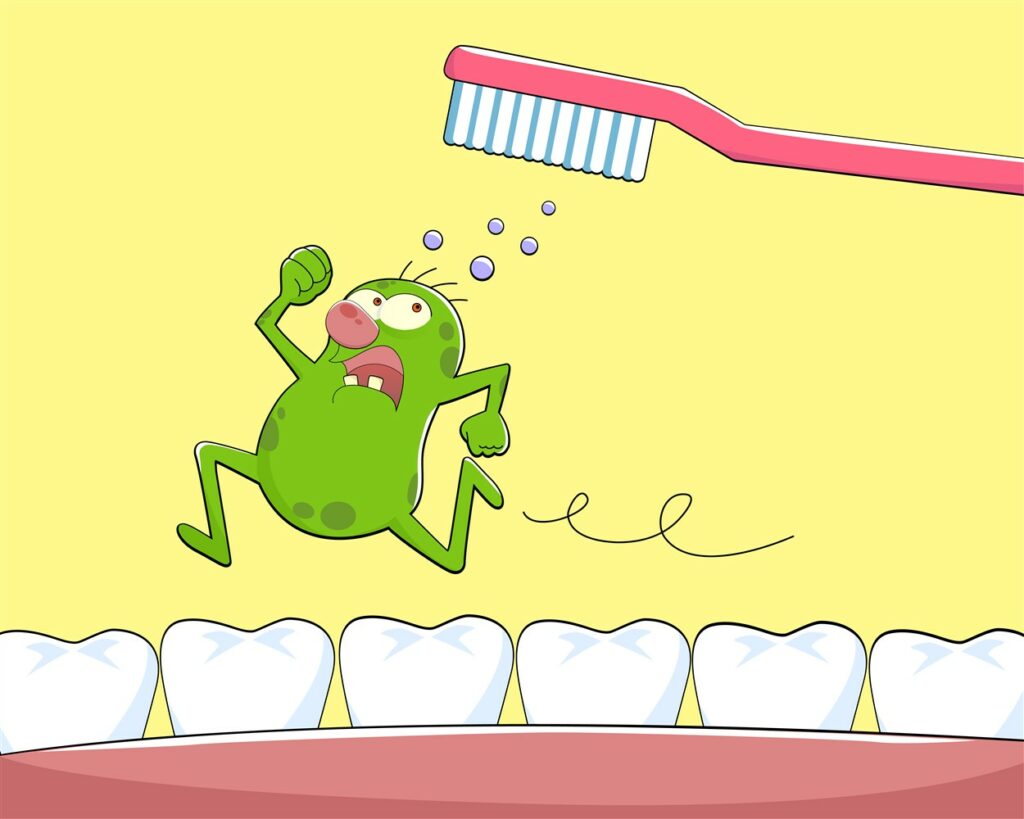Understanding and Preventing Bad Breath
If you’ve ever worried that you might have bad breath, you are among the large numbers of patients who ask their dentists about this every day. Since bad breath can be offensive and off-putting, it is considered a social taboo. In our social environments and close personal relationships, bad breath can negatively impact our ability to interact with ease if we are distracted with self-consciousness. It may be worth noting, however, that while many patients disclose this concern to their dentists many of these patients do not in fact have bad breath. Of those who do, the vast majority can treat their bad breath with excellent oral hygiene, food choices and lifestyle changes.
Do You Have Bad Breath?
If you think you might have bad breath, the quickest and easiest way to find out is to ask someone close to you for their honest opinion. If you’re not thrilled at the idea of having this discussion, there are other ways to determine whether your breath is cause for concern.
Bad breath is most often caused by bacteria in the oral cavity. Most notably, the back of the tongue. Using a disposable spoon or tongue scraper to gently scrape the surface of the tongue near the back is one way to assess odor. Once the matter on the spoon has dried, you can smell the spoon to determine whether there is an odor in your mouth worthy of concern. An alternative is to floss the back teeth of the mouth and smell the floss. These methods work to draw odor causing bacteria out of the dark, moist and warm recesses of your oral cavity so that their odor can be objectively assessed.
Causes of Halitosis
Halitosis, the technical term for bad breath, can result from disorders of the sinuses, throat, lungs and stomach but most commonly the inside of the mouth is the culprit.
Smoking
If you are a habitual smoker, there is little doubt that your habit is contributing to bad breath. Salivary glands are inhibited when smoke is introduced into the mouth. This is a problem because part of saliva’s job (aside from helping to break down foods) is to assist in flushing the mouth. Without a ‘rinse’ cycle, the mouth can become a dry haven for bad breath bacteria to grow. This, in addition to the bad odor caused by the smoke itself, is likely playing a role in your halitosis concerns.
Medications, Coffee and Tea
Many medications can have a similar effect on saliva production as does tobacco. A dry-mouth side-effect can make speaking and eating uncomfortable, as the mouth lacks the lubrication needed to break down foods and swallow comfortably. Interestingly, coffee and tea also have the effect of drying the mouth. If you find this to be the case, we suggest looking around to find a herbal tea that you like just as much.
Gum Disease and Tooth Decay
If you have ruled-out smoking or medications as a possible cause of your halitosis, the next step is to assess your mouth for signs of tooth decay or gum disease. If you do not brush and floss often enough and effectively enough, the same bacteria that contribute to bad breath can collect around the necks of teeth near the gum line. Over time, what was once a sticky film of plaque becomes its calcified form – tartar. Bacteria causes irritation of the gums which leads to swelling and redness with bleeding during regular cleaning. Once tartar forms around the teeth, it isn’t possible to remove it at home as neither your mouth wash nor your tooth brush will produce the desired effect. Over time, the inflammation caused by tartar begins to cause the gums to pull away from the teeth. This creates a pocket within which bacteria can grow. In extreme cases, periodontitis (gum disease) results in premature tooth loss.
Similarly, the bacteria that cause decay and the food debris that can become lodged in a cavity can emit a foul odor. If you suspect that gum disease or decay may be the reason that you are experiencing halitosis, it’s time to schedule an appointment with your dentist for a checkup and cleaning,
Tonsil Stones and Allergies
Halitosis may be found to be the result of tonsil stones or allergies in some patients who experience regular post nasal drip. When mucus drips from the sinus cavity to the back of the throat, it can collect and become rife with bacteria. In some cases, bacteria collect on the surface or in the folds of the tonsil, resulting in what are termed ‘tonsil stones’. Tonsil stones may be visible in the back of the throat or may be hidden behind the tonsils. The stones can sometimes be removed manually, or by use of an oral irrigator or water flosser.
If you think that you may have symptoms of regular post nasal drip, we suggest speaking to your doctor about a medication such as an antihistamine that will help control post nasal drip and the resulting bad breath.
Foods
It isn’t just garlic and onions that produce that foul sulfuric odor. Cruciferous vegetables like broccoli, cabbage, cauliflower and kale can contribute to bad breath. If you love these vegetables, you may avoid most of the resulting bad breath by lightly steaming or otherwise cooking them.
Other Causes
If you have determined that none of these causes provides an explanation for your halitosis symptoms, see your dentist to discuss the possibility of the halitosis being an indication of a systemic problem that requires attention. These cases are rare and can be related to the sinus, throat, lungs or stomach.


